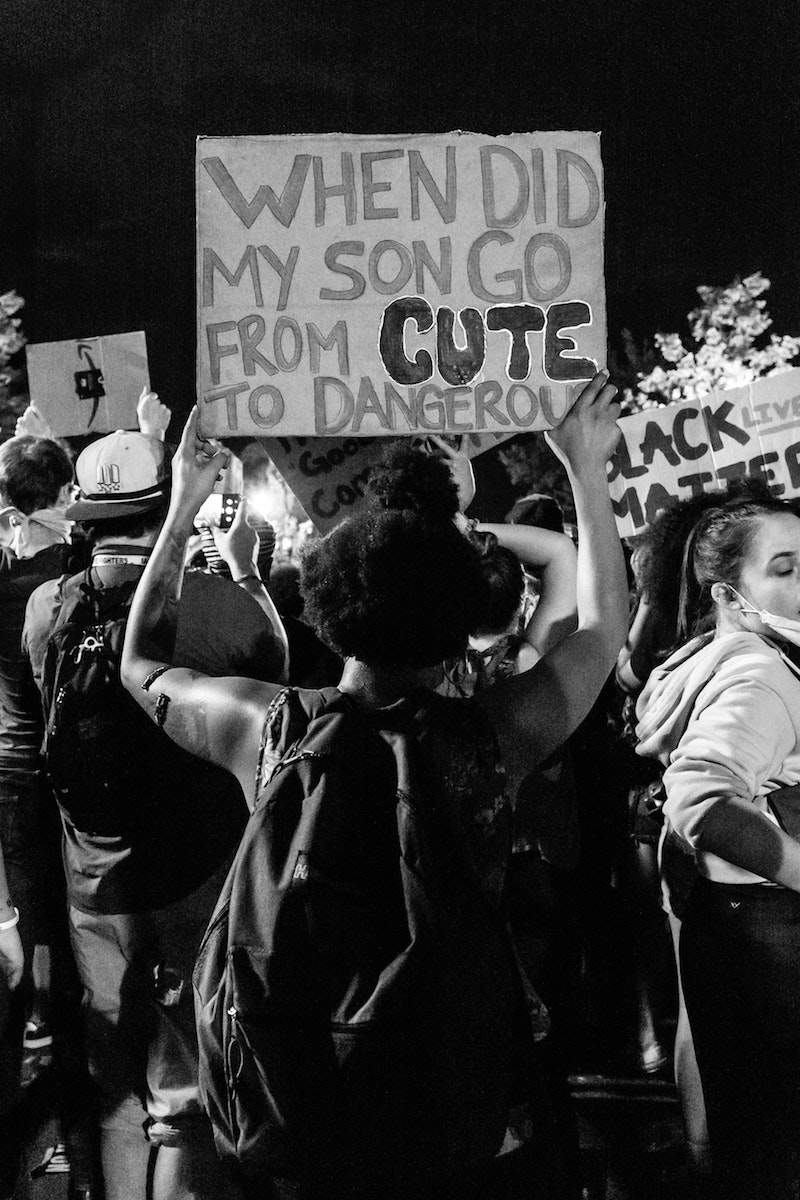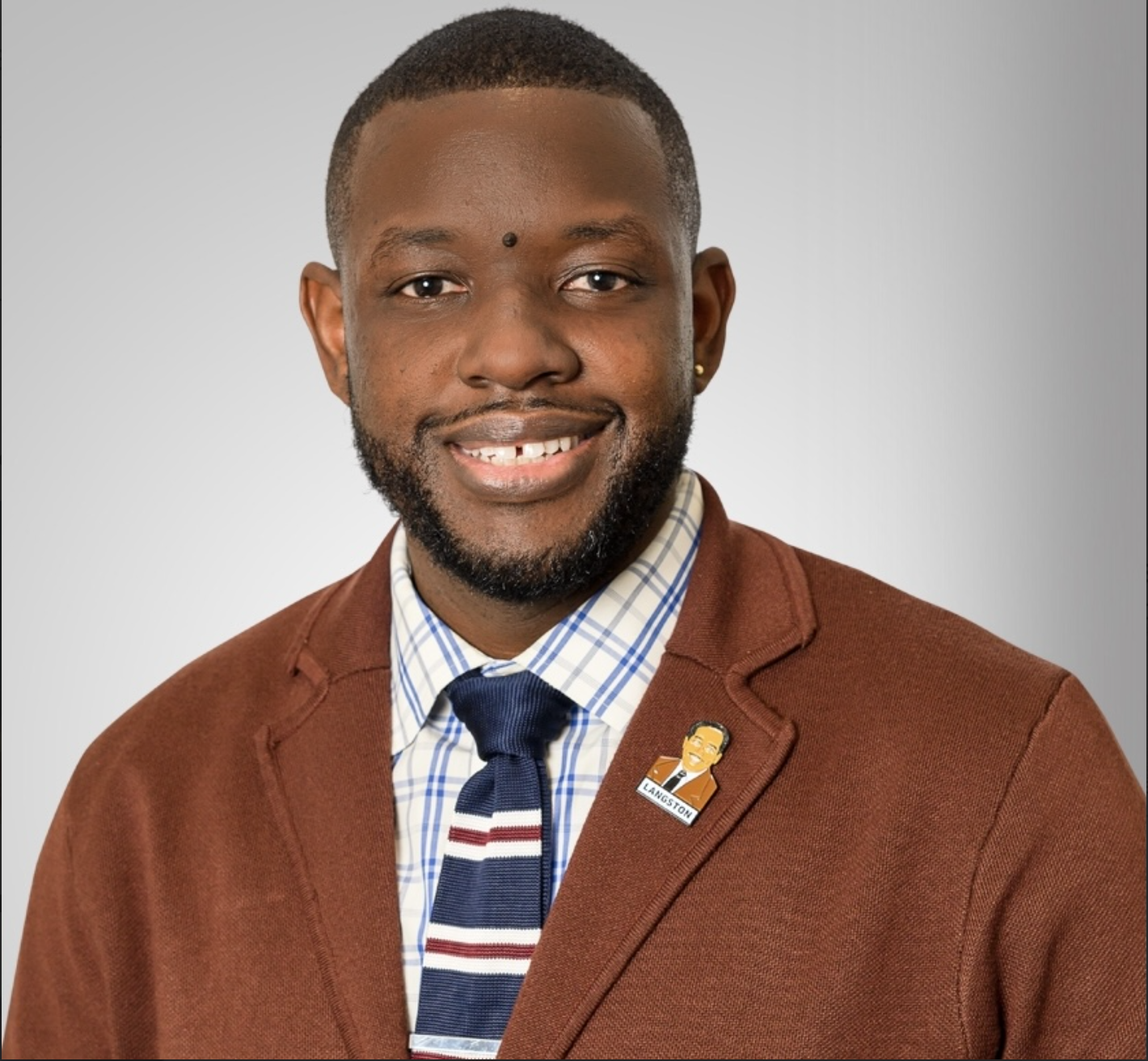A one-man menagerie, an exhibit unto himself to be gazed at, praised and caged. Black male public-school teachers are an undesired, under-recruited and under-used portion of the teaching populace. Black men make up only 2% of public-school educators. Teaching has traditionally been the domain of white women and largely white. This is true except that principals are statistically white and male.
Black men leave the profession at among the highest rates compared to other groups. In a society that will highlight or fear the physicality of Black men before it notices their intelligence, schools are little Americas. In schools we exchange “shut up and dribble” for “shut up and learn.” In schools Black boys are suspended and expelled at alarming rates. Black men are thought of as disciplinarians over teachers. After all, it’s hard to see “super-predators” as instructors. Schools have failed to build community for this group, leaving many Black male teachers to feel unwanted.
I didn’t have a Black man as a teacher until I was in college. This happened at the historically Blck Jackson State University. I went my entire K-12 school career without seeing a Black male teacher until I got to an HBCU. Without some fortunate experiences later in life, I would have never decided to become a teacher. In fact, I was never asked to become a teacher, and never thought of it as a possible career.
Most White Teachers Tolerated Me
I remember being tolerated by most white teachers as a child, and then having to prove myself to them as an adult. I believe that the teachers I encountered were themselves victims of a system that told them my worth long before I entered their classrooms. I was fortunate to have a teacher, a white woman, who saw potential in me as a writer.
My concern is that our society dictates that she was an outlier, not the norm. Teachers are not expected to see the rich value of young Black boys in their classrooms. They are considered behavior problems lacking discipline and respect.
The excuses abound. Other genders and races can certainly teach and educate Black children. However, in an educational landscape that is systematically failing young Black boys and men, the intentional neglect of Black male teachers is glaring. The unique experiences these teachers have allows them to specifically connect to Black boys who need them most. This connection is not just about discipline and punishment, but about a shared language and identity.
Studies show that having a teacher from their same racial or ethnic group can positively affect students. This impact is seen in absence rates, reading proficiency, math proficiency, suspension rates and graduation rates. For students of low-income communities and in under- resourced schools, the need is urgent. The school-to-prison pipeline exists because America has done a terrible job at educating its most at-risk groups, and an amazing job at building a glutinous prison industry.
For Black men, trauma and not just exposure are factors when choosing to become a teacher. The same schools that make a point to punish our boys seem to also be unwelcoming places for our Black men to work. Imagine the strength it takes to return to sites of trauma as champions of the education system—to be cursed Americana wrapped in enough patriotism to educate America’s future.
School is where some of us first learn the tools of survival. It is where many Black boys first encounter the difference, how consequences for us do not align with others. We begin to understand the discounted price tag ascribed to our freedom. It is in the silence when we achieve, the practiced disappointment when we fail. This is why schools need to recruit and retain Black teachers. Schools need to become safe places for Black male life and intellect.

‘Misbehaving’ While Bored
Recent history has reinforced the lack of safety Black men experience in America. Education, as an American institution, is no different in terms of how it views Black men. My son was condemned to facing a wall, to shed his boyish innocence in a corner because he was too active for his (Black) Pre-K teacher to feel safe. We would later discover that Gabriel was at least one school year more advanced than his classmates, and his “misbehaving” was the result of boredom. By 4 years old, my son had already graduated from baby to monster in the eyes of the education system.
Working in schools, I’ve experienced parents overlooking a Black principal, believing the white teacher must be in charge only to be embarrassed at the revelation that the Black person is indeed the school leader. My content mastery has been called into question in favor of a white woman teacher that I trained. It was suggested that I should simply manage the behavior of our majority-Black students, and this other teacher would handle the actual teaching.
Schools have become breeding grounds for the ideologies of the dominant culture. Thus the voices of oppressed cultures must fight to be heard. History is taught as a spectacle of remembrance, a celebration of American progress. The truth is that history is never solely past; it bleeds into the future, leaving a trail.
The denial of this means that Black students aren’t the only ones suffering from the dearth of Black male teachers. In a society that places Black men in the forefront of the racial discussion, the chances of that discussion entering the classroom increase as Black men teach. This allows students from other races to see the humanity and intelligence of Black men, and also places them in positions of influence. The prospect of that influence is perhaps frightening to those who oppose change, but how can America reconcile without hearing the voices of those it has oppressed?
Public schools are becoming progressively diverse in terms of student populations. Centering culturally and racially responsive practices becomes more important with each passing school year. Students are having conversations about race, inside and outside of classrooms. Recruiting and retaining Black men, transforms the conversations from being about Black men to with Black men.
For American public schools, the task is to include one of America’s most marginalized groups in education to share its unique leadership and perspective. For Black men, the task is revolutionary: share the inherited gifts of your Blackness for the reimagining of America by having a hand in the shaping of its youth. But I will not ask it of them.

A Hidden Consequence of History
The absence of Black teachers is not simply the result of happenstance or choice, but the hidden consequence of history. Like a country going through growing pains, desegregation in the time of Brown v. Board of Education translated into Black educators losing standing and position as some of them were integrated into white schools. They watched as their schools, underfunded as they were, closed. According to historian Vanessa Siddie Walker, “Black educators discovered that they were the victims of an exchange model through which they traded aspiration and advocacy for access to the resources white schools had.”
America must seek to perfect the job of desegregation and actively aid in the restoration of the Black teaching class. I challenge you to ask a local principal what they are doing to recruit Black men to teach. Inspect your school districts, and examine how they are recruiting and retaining Black educators and school leaders.
In the words of Mary McLeod Bethune, “I leave you a thirst for education … a responsibility to our young people.” The future of our nation is tied to our ability to see people as more than what our prejudices have told us they can be: to see the professor over the predator. This is hard, but worthy work. It requires an intentional examination of our own biases and the systemic realities that have influenced them.
Yet because the education of America’s children is at stake, this reflection must be urgent and actionable. As it relates to public schools, Black men are a virtually untapped human resource, waiting to be employed toward the education of America’s future.
This MFP Voices essay does not necessarily represent the views of the Mississippi Free Press, its staff or board members. To submit an essay for the MFP Voices section, send up to 1,200 words and factcheck information azia@mississippifreepress.com. We welcome a wide variety of viewpoints.






